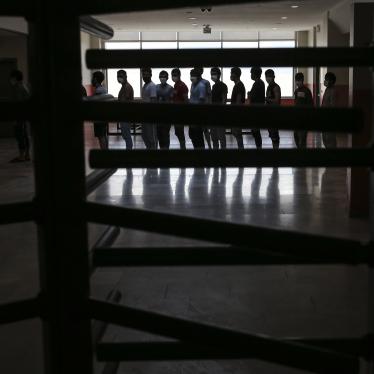(New York) -- Plans by the government of Pakistan to establish refugee camps inside Afghanistan instead of allowing refugees to cross into Pakistan could seriously endanger the lives of refugees, Human Rights Watch said today in a letter to President Musharraf of Pakistan.
Human Rights Watch also called on the Pakistani government to halt the establishment of camps in the Federally Administered Tribal Areas of the North-West Frontier Province (NWFP) - known as the "tribal areas."
"The security of refugees cannot be guaranteed in either of these areas," said Rachael Reilly, refugee policy director at Human Rights Watch. "The Taliban's record of protecting its own citizens is dismal and the tribal areas are known to be insecure, inaccessible, and lacking an adequate water supply."
By turning away refugees at the border and deporting those who have already crossed and sending them to camps in Afghanistan, Pakistan would be violating fundamental international obligations not to return refugees to a country where their lives are threatened, Human Rights Watch said. The Taliban have attacked humanitarian agencies and confiscated food supplies in recent weeks (see Human Rights Watch press release - Afghanistan: Attacks on Aid Increasing), leading to serious concerns about the security of refugees and access to adequate humanitarian assistance if camps were established under Taliban control.
Hostility towards refugees and aid workers in the so-called tribal areas of Pakistan is already high and may increase with a further influx of refugees, making it difficult for relief agencies to operate, Human Rights Watch warned. United Nations and non-governmental relief agencies have already been subjected to harassment and attacks in the course of preparing and constructing these camps. The camps are also dangerously close to the border with Afghanistan, in violation of international standards that stipulate that camps should be located at a "safe distance" from international borders.
"Human Rights Watch appreciates the assistance that the Pakistani government has already been providing to over two million Afghan refugees for the past two decades and the strain that a further influx of refugees will place on the country's resources," said Reilly. "However these concerns must be addressed in accordance with Pakistan's international obligations to protect refugees and provide them with a safe refuge in Pakistan."





